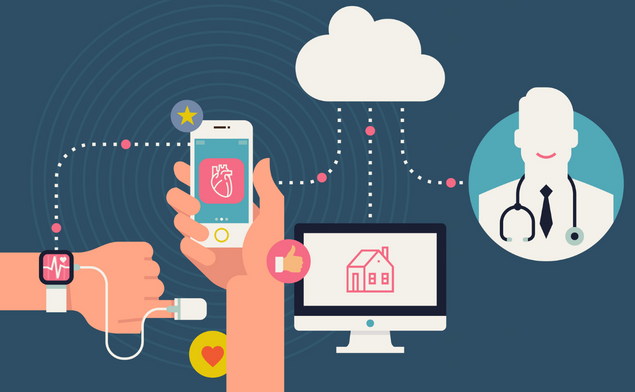The NHS is one of the largest and most complex healthcare systems in the world, serving the healthcare needs of more than 66 million people. In recent years, the NHS has been grappling with significant challenges, including increased demand, financial pressures, and an ageing population. To address these challenges, the NHS has been focusing on the three key areas of interoperability, joining up care, and innovation. In this blog post, we'll explore the ways in which innovation is driving improved care, the challenges of utilising smartphones, apps, and wearable technologies, and how the NHS can overcome infrastructural barriers to transformation.
- Virtual wards and smart hospitals: How is innovation driving improved care?
- Utilising the power of smartphones, apps, and wearable technologies in healthcare
- Overcoming connectivity and legacy system challenges
- Utilising health data in analytics
- The effectiveness of diagnostic hubs for workers and patients

Virtual wards and smart hospitals: How is innovation driving improved care?
Innovation is playing a key role in driving improved care within the NHS. One example of this is the development of virtual wards and smart hospitals. Virtual wards enable healthcare professionals to monitor patients remotely, reducing the need for hospitalisation and freeing up beds for those who need them most. Smart hospitals use the latest technologies to streamline processes and improve patient outcomes, such as automated medication dispensers and telemedicine solutions. These innovations are helping the NHS to provide better, more efficient care for patients.
Utilising the power of smartphones, apps, and wearable technologies in healthcare
Smartphones, apps, and wearable technologies have the potential to revolutionise healthcare. For example, wearable technologies such as fitness trackers can provide valuable data on patients' physical activity and health, which can help healthcare professionals to better tailor treatments to individual needs. However, there are operational and security challenges associated with these technologies. For example, there is a risk that sensitive patient data could be compromised if not properly secured. The NHS must carefully consider these challenges when implementing new technologies.
Overcoming connectivity and legacy system challenges
The NHS is facing significant infrastructural barriers to transformation, such as connectivity issues and legacy systems. For example, different parts of the NHS often use different IT systems, which can make it difficult to share information between healthcare professionals. To address these challenges, NHS England is providing support to trusts to help them overcome connectivity and legacy system challenges. For example, NHS Digital has developed a toolkit to help healthcare professionals securely share patient information across different systems.
Utilising health data in analytics
Health data is a valuable resource that can help the NHS to better understand patient needs and provide more effective treatments. However, there is a need to better utilise health data in analytics. For example, the NHS could make use of predictive analytics to identify patients who are at high risk of developing certain conditions, such as diabetes, and provide preventative interventions. There are also other forms of data, such as social and environmental data, that the NHS could utilise to better understand the factors that contribute to poor health outcomes.
The effectiveness of diagnostic hubs for workers and patients
Diagnostic hubs are facilities that provide specialist diagnostic services to patients, such as MRI scans and blood tests. These hubs can be an effective way to provide faster, more accurate diagnoses for patients, and can also help to relieve pressure on other parts of the NHS. However, there are challenges associated with the implementation of diagnostic hubs, such as the need to ensure that staff are properly trained and that equipment is properly maintained.
Overall, it's clear that innovation is playing a key role in driving improved care within the NHS. Virtual wards and smart hospitals are helping to streamline processes and improve patient outcomes, while smartphones, apps, and wearable technologies have the potential to revolutionise healthcare. However, there are challenges associated with the implementation of new technologies, such as operational and security challenges. To overcome these challenges, the NHS must carefully consider the implications of new technologies and work to overcome infrastructural barriers to transformation. Ultimately, by utilising health data in analytics and providing more effective diagnostic services, the NHS can continue to improve the quality of care it provides to citizens.
Interested in learning more? At Digital Government, leading health experts from across the UK will unite to discuss the above topics and much more. Join us on the 23rd May, live and in person at the QEII Centre, London. Secure your pass here.

Julia Esgate Christmas
Experienced marketer with a demonstrated history of working in the events services industry. Marketing professional with a Bachelor of Arts (BA Hons) in English Literature from University of Brighton.




